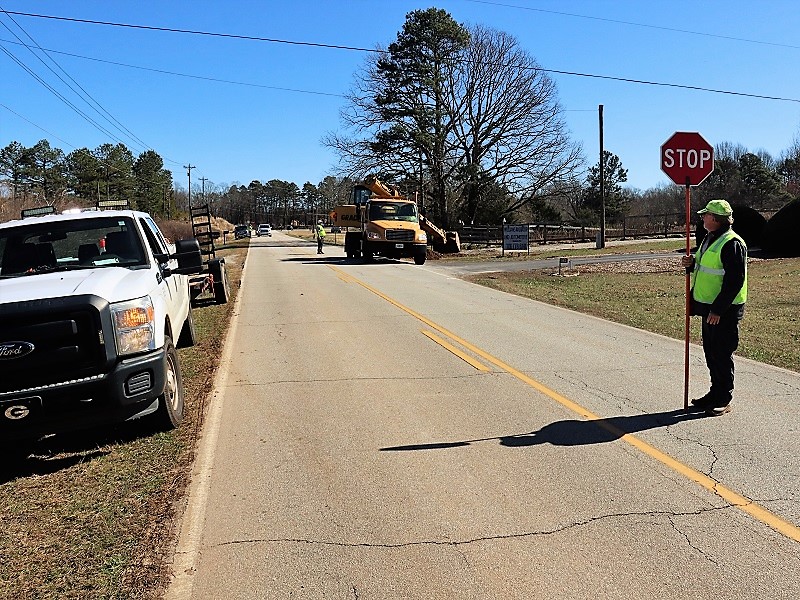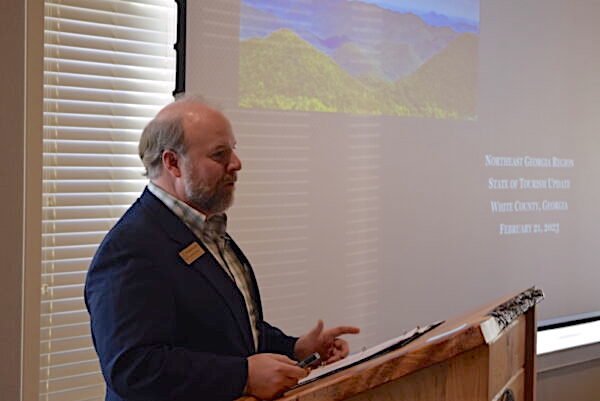PLAINS (GA Recorder) — The first media caravan arrived here late Saturday after the news Jimmy Carter would forgo any medical intervention, and the family used the word “hospice” to describe his treatment going forward. The 39th president, the only one from Georgia, is 98 years old. People here dread the inevitable.
The townsfolk are shaking their heads in dismay at the sudden clamor. Some are perturbed. This is “Mister Jimmy,” one tough son of a gun, and the 700 people that live in this middle Georgia hamlet are fairly certain the obituary of their hero is being rushed.
“We’re not expecting to let him go any time soon,” said Jan Williams, a member of Carter’s church who has known the former president many years. “If the word ‘hospice’ wasn’t used would you all be here?”
“This is a rehearsal for y’all,” said George Williams, her husband, as if to say the media was getting organized for something not immediately imminent.
Jan Williams said Carter has been in and out of the hospital in recent months, but word “leaked” that he was being discharged and it prompted a statement from The Carter Center about his deteriorating health.
The number of SUVs ferrying media into town outnumbered the number of pickup trucks along the railroad tracks cutting through downtown Tuesday. At least four tents have been set up by TV stations. Reporters with microphones and cameras crowded the wooden walkway in front of the shops.
Business in the shops was brisk with the swelling crowd. Peanut ice cream at Bobby Salter’s place was the leading small-town treat of the day.
Still, the town was not ready for the attention.
“It feels a little too early for this,” said Stephanie Young, who owns Southwest Trophy & Gifts.
One store worker leaned forward across the counter and whispered, “This is so premature. He’s tough. He might hang on a while.” She declined to give her name without her boss’s permission.
Jimmy Carter, after all, is the longest-living president. Ever.
Another downtown worker said, “We hear he had a good day Monday,” she said. These are not rumors, she said. After all, the president has lived here for decades, and close friends and family stay informed.
There is good reason people here are reluctant to think “Mister Jimmy” will be gone shortly. Many recalled a storm that swept through town with such ferocity it brought down trees and thick limbs and thrust a pine needle into a brick on the side of a building. Carter, in his 90s, was out the next day helping with the cleanup.
The people here marvel over his resilience against melanoma on his brain and liver seven years ago, as well as bruising from several falls more recently. They are not accepting he will not be with them much longer.
At the Carter compound just outside of downtown, where the president and his wife Rosalynn Carter have lived full time for decades, Paulk’s Landscaping service was spreading fresh pine straw on the grounds, a familiar ritual when spring is close.
The red wagons full of eight tons of peanuts rumbled through downtown to scales. Carter was a peanut farmer before he was elected Georgia’s governor in 1970 and president of the United States in 1976. The wagons are still clearing peanuts out of the warehouses from the fall harvest.
If not for the flock of media, it would be business as usual.
“Vultures,” one woman said along the storefronts.
Still, the people who live here could brush away their annoyance to talk about “Mister Jimmy.” One lady handed out LeeAnne’s Oatmeal Lace Cookies and other sweets to media members parked on the benches downtown. They chatted about life in Plains and forgot they were annoyed, which was in keeping with the former president’s charitable spirit.
“We have a lot of pride here that President Carter is from Plains,” Young said. “A lot of pride. I promise you there is never going to be another president like him and all he has done for people in this country and around the world. With him, it was always ‘What can I give back.’”
Now, the people want to give back.
At Carter’s church, Maranatha Baptist, where he taught Sunday school, Lana Varley of Perry tried to peer through the stained glass windows, searching for a way inside. She drove 56 miles Tuesday, hoping there might be a prayer service or candlelight vigil.
“I’m Catholic. In times like these, we light candles,” she said.
Varley met Carter at the ribbon-cutting of a new restaurant in downtown Plains five years ago. “I got to shake his hand,” she said. Her reverence was clear.
Carter’s boyhood home, the farm where he was raised, welcomed a steady stream of visitors last weekend, almost 500, according to a National Park Service guide. Some of the traffic had to do with the Presidents’ Day holiday, but there is heightened interest in Carter with the weekend’s hospice announcement.
Plains is a respite from the sometimes coarse tone of today’s American politics. There is no rage, no hijinks, no willful abandoning of principle, which is more reason why there is some disdain for the rush on downtown by outsiders. It is spoiling their intimate moment in some ways.
It’s still a small town, no matter that one of its residents was once the leader of the free world. All the shops downtown were closed promptly at 5 p.m. Tuesday. Luther Perry, who was selling walking sticks downtown, said he was a “crackhead” in Marietta before he moved back here to his hometown. “Plains saved my life,” he said.
Jan Williams said there are plans being made for the inevitable. It will be organized and fit for a king, she says.
She, among others, isn’t ready to bid farewell just yet. The Carter family has farmed in this community for more than 100 years, and the story continues for the people here, never mind the noise from outsiders.














